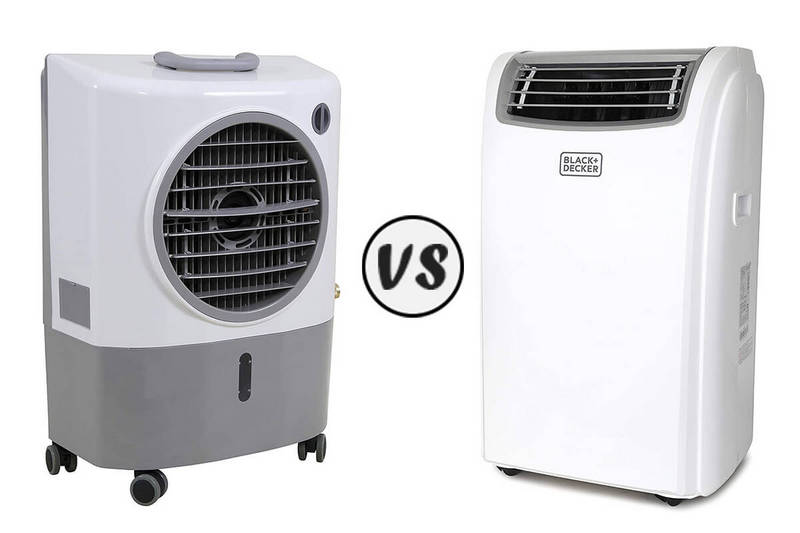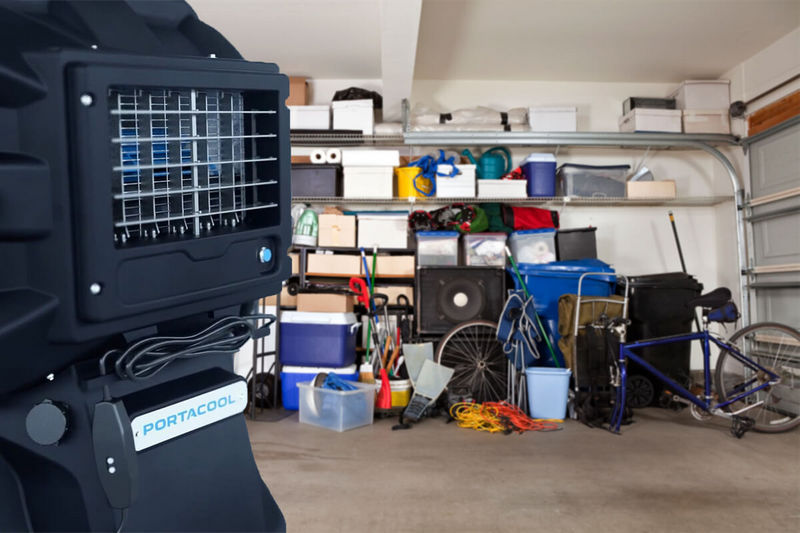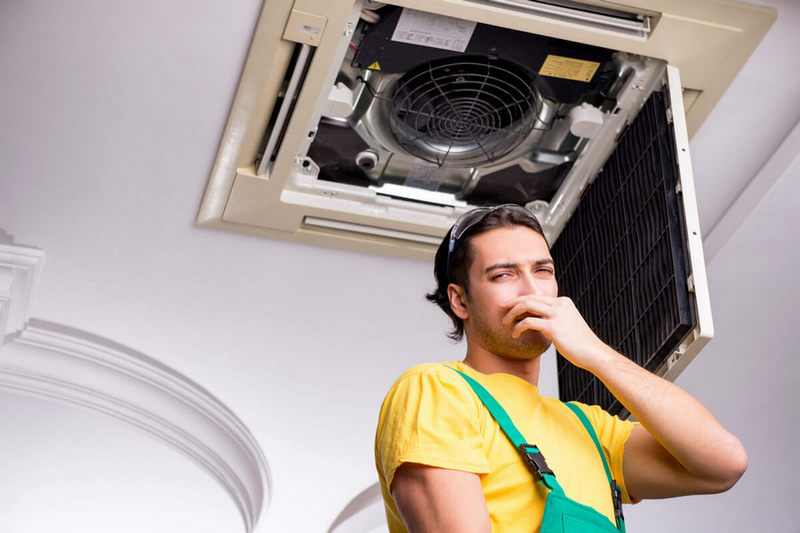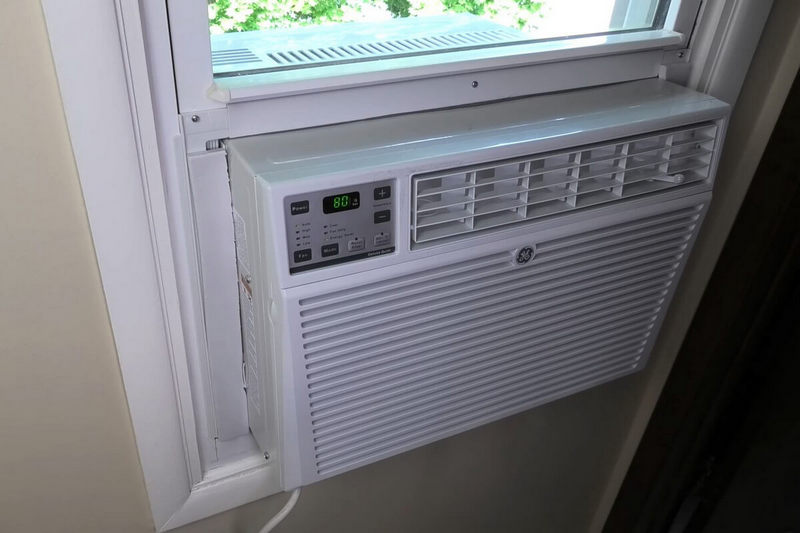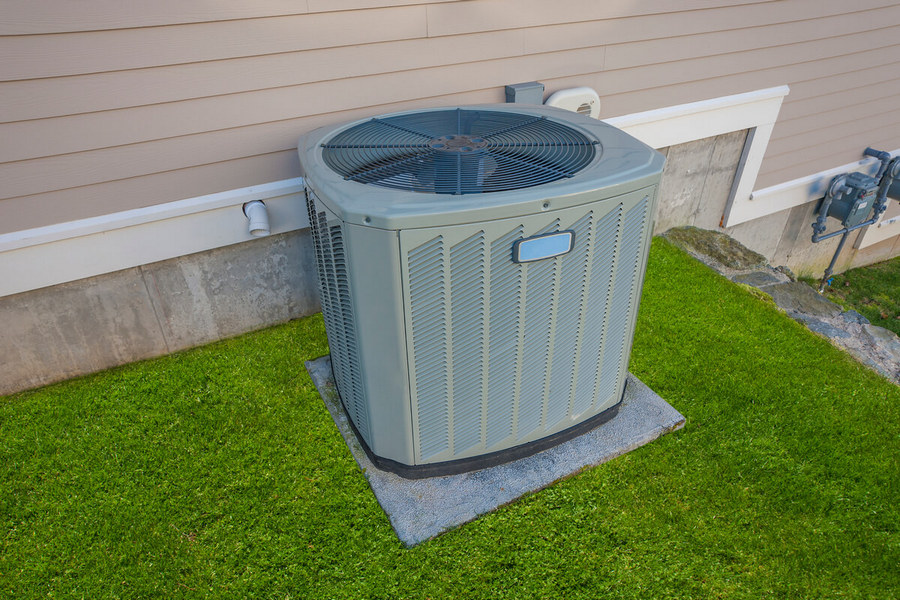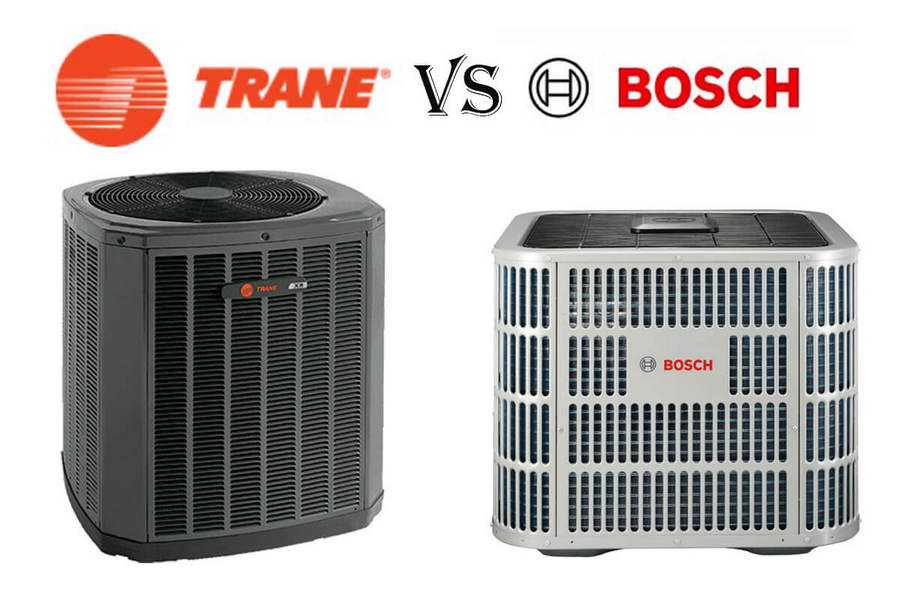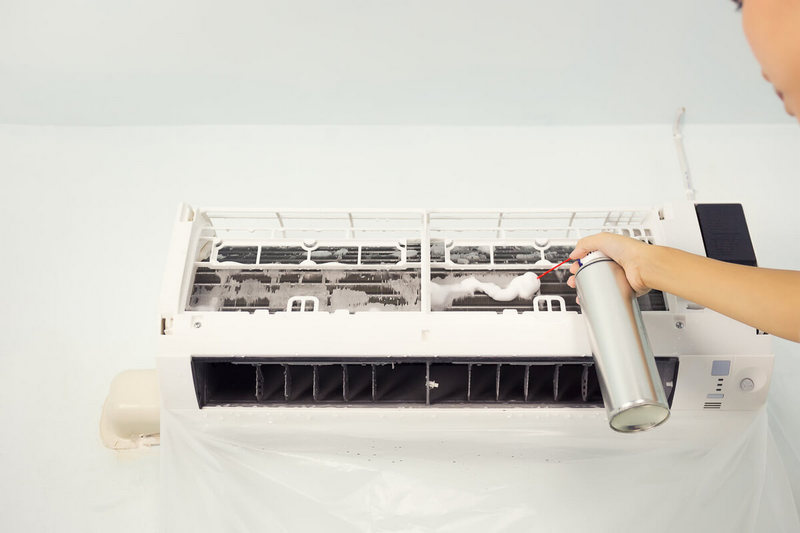Who doesn’t want to live or work in a cool and comfortable environment? Advanced and innovative products in cooling technology offer a variety to make your environment conducive surrounding. The choice is between an air cooler vs. an air conditioner.
Here is a buyer’s guide that shows the difference between an air cooler and an air conditioner. We considered the working principle, initial cost, energy consumption, installation, and maintenance aspects of each appliance.
Air Cooler vs Air Conditioner: Working Principle
An air cooler applies the evaporative principle to remove heat from surrounding air with water-absorbent pads. The motor in air coolers blows hot water near the absorbent pads for the cooling effect.
A fan in the appliance then blows the cool air out into the circulation. For cooler air, you can use the appliance with ice cubes. Since air coolers add moisture to the air when cooling, they are suitable for dry climates.
On the other hand, air conditioners use a refrigerant and chemical coolant to cool the hot air. The compressor in the evaporative unit absorbs the hot air, and the evaporator coil draws the heat from the air with the refrigerant.
The refrigerant with the heat moves into the condenser unit for cooling. The fan in the condenser then disperses the cool air. Due to the dehumidifying effect of air conditioners, the appliance is effective in humid climates. Nonetheless, air conditioners are also efficient for use in normal and dry climatic conditions.
Of the two air cooling appliances, the air conditioner has a more complex working principle than the air cooler.
Read Also: How Humidity Affects Evaporative Cooling
Initial Cost of Appliances
The initial average cost of acquiring an air cooler or air conditioner depends on the model size and brand. Like many products, you will find a variety of air cooling appliances in the market. Take time to identify the device that best meets your needs for comfort and budget.
However, both cooling types of equipment vary in price. If you are shopping on a tight budget, you might want to explore the available air cooler units. Air conditioners come with a bigger price tag. Hence, they are ideal for buyers on a more accommodative budget.
Air coolers are an economical alternative as they provide the most value for your money.
Read Also: How Much Does It Cost to Run a Fan
Air Cooler vs Air Conditioner Electricity Consumption
When considering a suitable air cooling appliance for your residential or commercial space, you have to determine how energy efficient your choice is. Always go for the low energy consumers as they translate to less electricity use and low utility bills.
An air conditioner has a complex operating system with compressors that rely on electricity. Such a device consumes considerable power, elevating your utility bill. However, an air cooler will significantly cut down your electricity cost as they operate with a simple motor. On average, an air cooler uses 75-80% less energy than the counterpart.
Read Also: When Should I Turn My Air Conditioner On
Installation & Maintenance
Portable air coolers come with zero installation requirements. All you have to do is set the appliance up in your space, and the cooling begins. Most models have castors for convenient portability from one place to the next. So, you can readily plug in and out the air cooler as per your needs. There are ultra-portable air coolers that have a small capacity and compact framework for easier handling.
In contrast, you have to arrange your room and ensure proper insulation before setting up an air conditioner.
What’s more, whether you go for a split or window air conditioner, mounting and dismounting are necessary. Unlike air coolers that utilize the outside air, air conditioners work effectively in insulated spaces.
For a properly functioning air cooler, you need electric power and cold water for the cooling effect. You, therefore, have to refill the water tank every day for use.
On the other hand, air conditioners require a clean air filter and electricity. The frequency at which you change the air filter depends on the volume of air the conditioner cools. However, most air conditioner brands recommend that you replace the filter every month.
Despite the variation in maintenance, an air conditioner will use up three times more operating cost than an air cooler.
Related: Why Is My Portable AC Unit Not Cooling Room
Cooling Capacity
Air coolers and air conditioners are two popular appliances for cooling down spaces. However, they measure cooling capacity differently. Air coolers use CFM (cubic feet per minute) to measure the amount of air they can move in a minute, while air conditioners use BTUs (British Thermal Units) to measure how much heat they can remove from a space per hour.
In general, air conditioners have a higher cooling capacity than air coolers. The CFM rating for most models of air coolers ranges from 500 to 5,000, while the BTU rating for an air conditioner is typically anywhere from 5,000 to 25,000.
When choosing between an air cooler and an air conditioner, it’s important to keep the cooling capacity in mind. An air cooler with a high CFM rating will suffice for cooling down a small room or a single space. However, for larger areas, it’s best to choose an air conditioner with a high BTU rating.
Environmentally Friendly
It is your social responsibility to maintain environmental sustainability by reducing your carbon footprint.
Air conditioners use a refrigerant that often features Chlorofluorocarbons (CFCs) and others like HCFs and HCFCs. These greenhouse gases are detrimental to the environment due to the global warming and climate change effect.
As the air passes the refrigerant for cooling, it circulates into the surrounding, affecting air quality. As such, the US Government has banned the use of greenhouse gas refrigerants as a safety regulation.
Since air coolers only need water and a motor for operation, they are safer for your health and the environment. Hence, they are more eco-friendly than air conditioners.
Air Cooler or Air Conditioner: Which is Best?
So, which air cooling appliance is preferable, the air cooler or the air conditioner? The choice depends on the user’s preferences. Although the size and cost of the appliance matter, your lifestyle will have an impact on your decision more. If you have a small family unit, an air cooler works just fine. However, an air conditioner is more suited for larger homes or office spaces.
In addition, air coolers will cool the air only to a certain extent. However, you can customize the temperature and humidity of your environment with an air conditioner.
Air coolers come in handy for cost minimization, energy-saving, use flexibility, and environmental integrity. However, air conditioners are the ideal choice for effective cooling in the long run.
Look out for additional features such as quiet operation, speed, and remote control. Be sure to check the digital features that enhance usability and efficiency. You also have an array of aesthetic aspects to consider for the curb appeal you want. There are sleek, tower-like air cooling appliances in unique shapes and shades out there.
Now that you understand the difference between an air cooler and an air conditioner, it is time to embark on that shopping spree.

